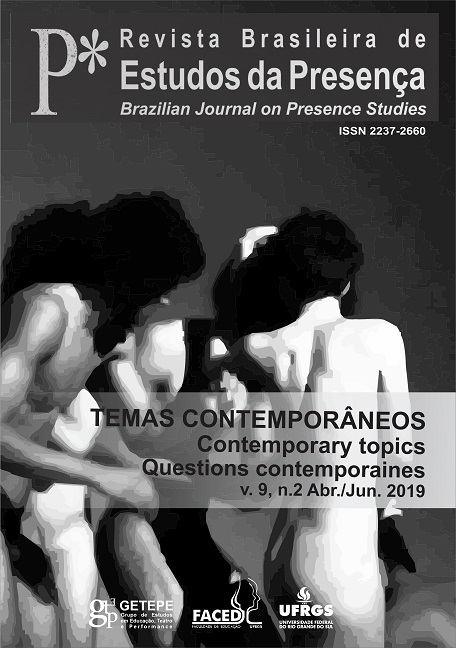Zoe: threatened common life
Keywords:
Zoe, Utopian Body, Heterotopia, Culture, SubjectivityAbstract
In 2017, the dance performance Zoe, directed by the choreographer Francini Barros, was censored because its first scene had a naked performer on the sidewalk of the Apolo Theater in Recife. The fact led to a reflection on art as a mechanism to establish a utopia against neoliberal conservatism. This paper aims at understanding how the creative processes of the performance Zoe are placed as a micropolitical strategy of resistance to that conservatism. In order to do so, it establishes a dialogue with Agamben, Foucault, Deleuze, Guattari and Rolnik to discuss categories that served as a basis for our argumentative line, like ordinary life (zoé), utopian body, heterotopia, culture and subjectivity.Downloads
Published
How to Cite
Issue
Section
License
Readers are free to transfer, print out and use the articles published in the Journal, as long as there is always explicit mention to the author(s) and to the Revista Brasileira de Estudos da Presença and as long as there is no alteration of the original work. Any other use of the texts needs to be approved by the author(s) and by the Journal. By submitting an article to the Revista Brasileira de Estudos da Presença and having it approved, the authors agree to assign, without compensation, the following rights to the Journal: the rights of first publication and the rights to redistribute the article and its metadata to the indexing and reference services that the editors deem appropriate.
 This journal use a Licença de Atribuição Creative Commons.
This journal use a Licença de Atribuição Creative Commons.

















